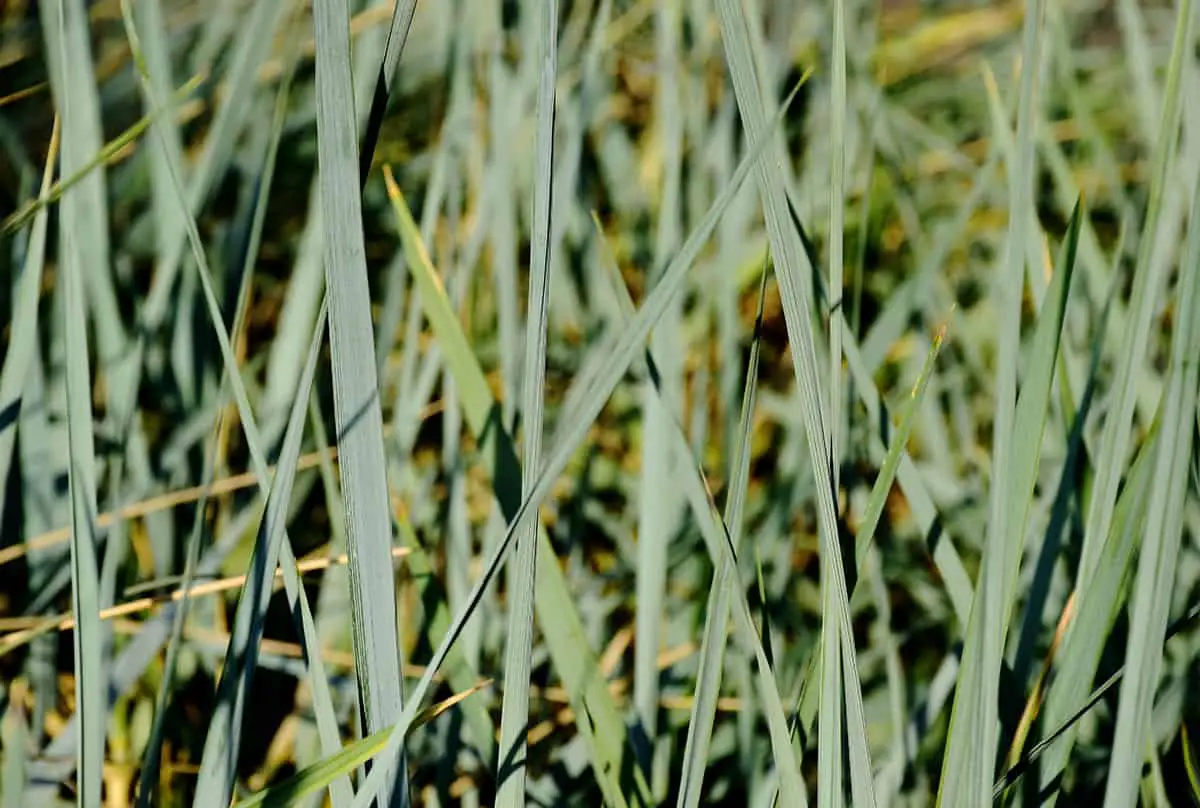You’ve set up a cozy little nook on your balcony, but it feels a bit exposed to the neighbors across the way. If you’re looking for a green way to create some seclusion, adding balcony privacy plants can be a perfect and picturesque solution.
This guide will help you choose from 20 ideal plants that not only grow well in balcony conditions but also provide the much-needed privacy to make your outdoor space your own personal sanctuary.
Table of Contents
Bamboo
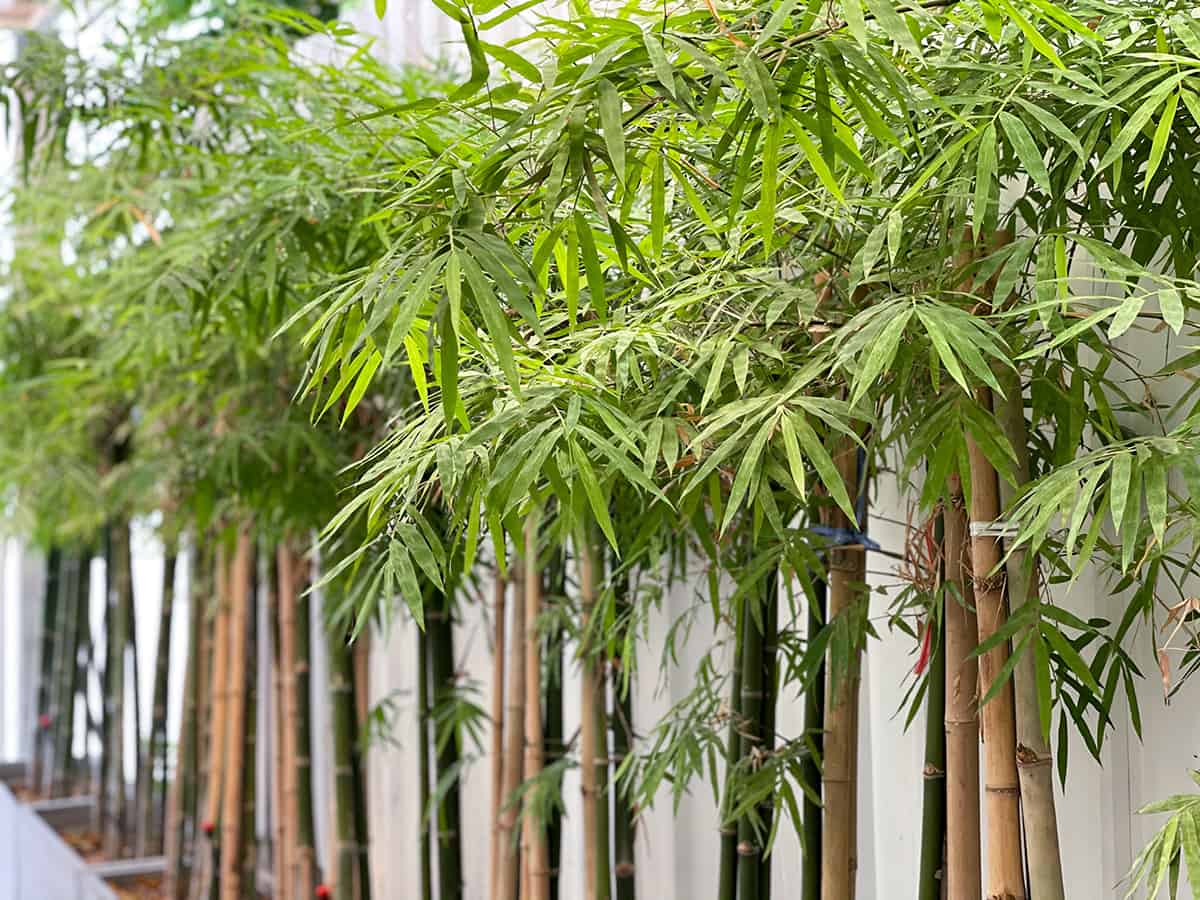
Bamboo offers an excellent privacy screen for your balcony. It grows tall and dense, providing natural seclusion quickly. When choosing bamboo, look for clumping varieties, like Fargesia. These types spread less and are easier to manage than running bamboos.
Your balcony environment may challenge plants. Yet, bamboo thrives with minimal care, even in pots. Key care includes regular watering and shielding roots from extreme heat. This care helps bamboo resist stress and maintain a lush appearance.
Bamboo height varies, but some types reach up to 15 feet. Clumping bamboo, such as Scabrida, typically suits balcony spaces. It has upright growth and vibrant foliage, offering both privacy and aesthetics.
Before planting, ensure your containers are large enough. They should withstand bamboo’s growth rate and size. Position the plant where it receives adequate sunlight for the best growth.
Boxwood
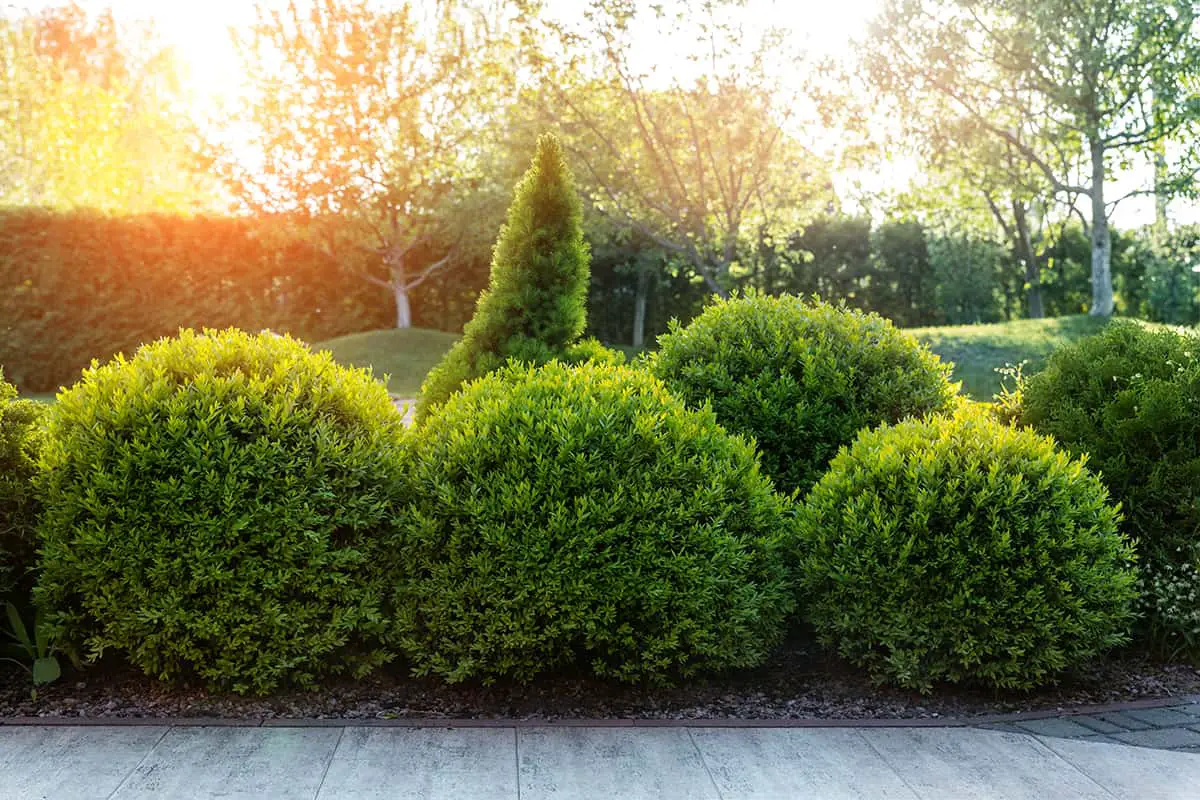
Boxwood shrubs provide excellent privacy for your balcony. These evergreen plants grow into a dense hedge. You enjoy both seclusion and year-round greenery. They serve well in containers, suitable for small spaces.
Boxwoods are versatile and withstand pruning. You shape them to fit your aesthetic needs, whether formal or informal. Remember, proper care maintains their appearance and health.
For deer-resistant choices, consider varieties of boxwood that are less appealing to wildlife. Your balcony remains private without attracting unwanted guests. Certain types can also resist boxwood blight, ensuring longevity.
Selecting the right boxwood means considering your climate. They generally tolerate both sun and shade. Some types, however, may yellow in full sun during winter. Research plants that thrive in your area for a successful privacy screen.
By planting boxwoods on your balcony, you create a private, lush outdoor retreat. Your space transforms into a green sanctuary which also supports local ecosystems.
Clematis
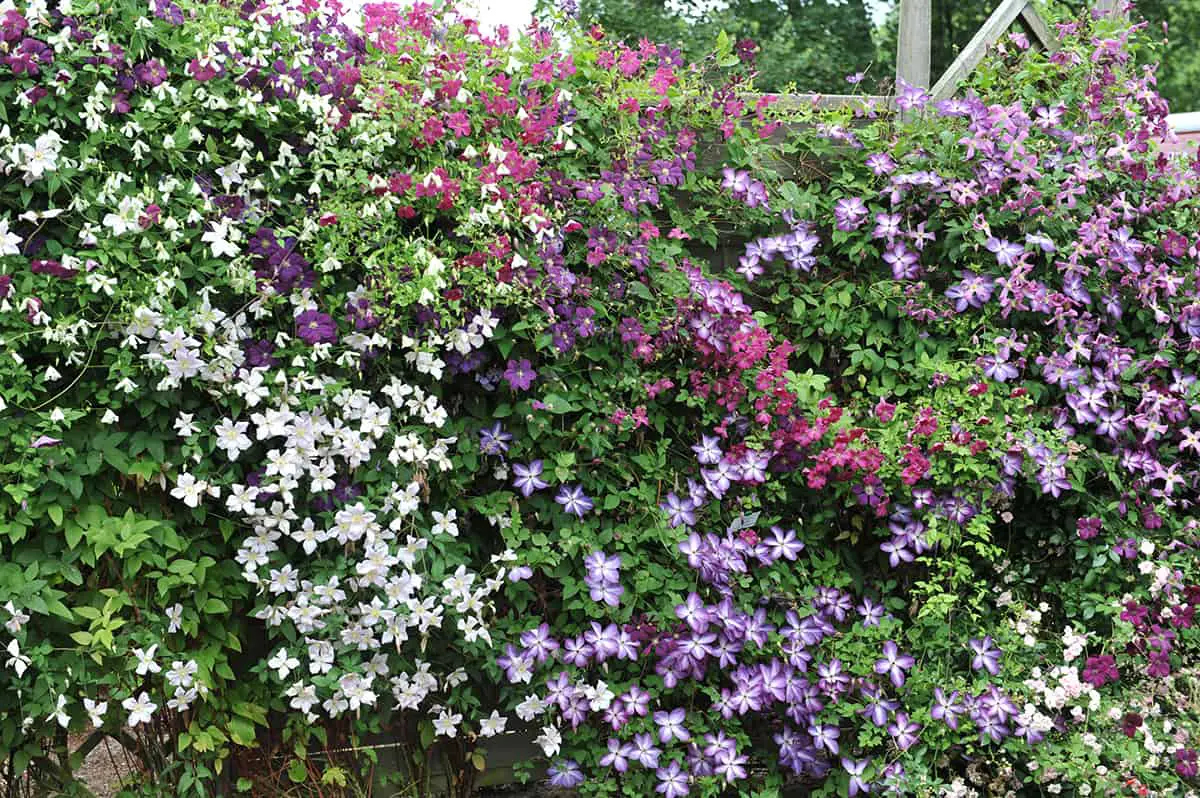
Clematis plants are an ideal choice for balcony privacy. These climbing vines rapidly grow. They bring height and a green curtain to your outdoor space. You will enjoy vibrant blooms throughout the seasons. Your balcony space turns into a secluded retreat.
Choose varieties of Clematis for long-lasting flowers. Alpine and Armand’s Clematis bloom in spring with delicate or creamy flowers. To learn more about their specific characteristics, visit the Home & Garden Information Center or the North Carolina Extension Gardener Plant Toolbox, where you can find detailed descriptions of the Alpine and Armand’s types.
For plant care, Clematis needs regular feeding. A low nitrogen, slow-release fertilizer works best. Give them this every 4 to 6 weeks during the growing season. They need proper pruning, which depends on whether they bloom on old or new wood. Handle their stems with care, as they are fragile.
When planting Clematis, ensure the roots are shaded but the vines get sunlight. This helps them thrive and flower abundantly. Consider using a trellis or railing for support. Your Clematis will climb up, giving you privacy and beauty.
Lastly, always check plant toxicity. Clematis can be harmful if ingested. Keep pets and children safe by planting them out of reach.
Ficus
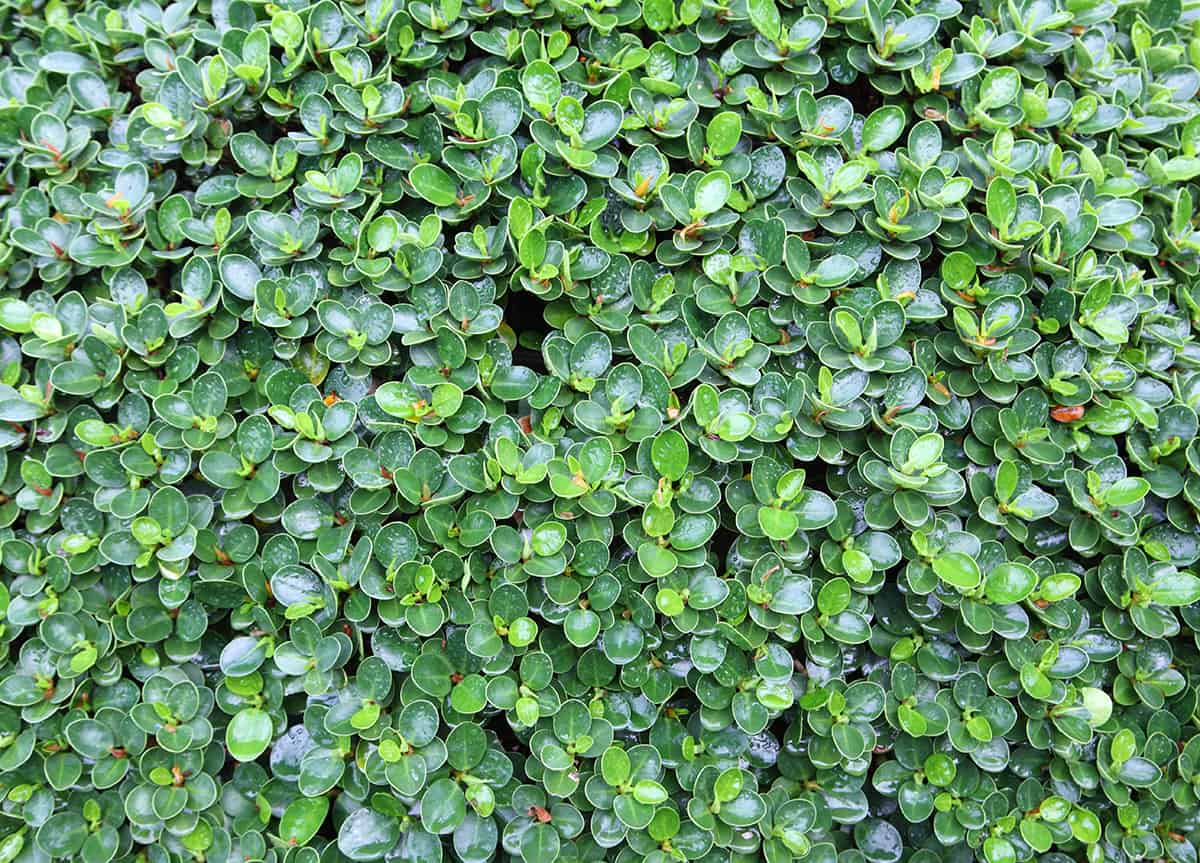
Ficus plants offer privacy for your balcony with their lush foliage. These plants come in various species, perfect for different climates and spaces. Ficus trees like Ficus microcarpa and Ficus benjamina are popular choices.
Your balcony space determines the size of the Ficus you can accommodate. Ficus microcarpa grows well in USDA zones 9a to 11b. It adapts to spaces from 12 inches to over 24 feet. For smaller areas, consider Ficus benjamina, which also prospers indoors.
Ficus plants need proper care. These include bright, indirect sunlight and regular watering. Ensure the soil stays moist but not overly wet to prevent root rot. Pruning is essential to maintain their shape and size, allowing you to control their growth on your balcony.
Be aware, some Ficus species can irritate the skin with their sap. Wear gloves during maintenance to avoid irritation.
Ivy (Hedera)
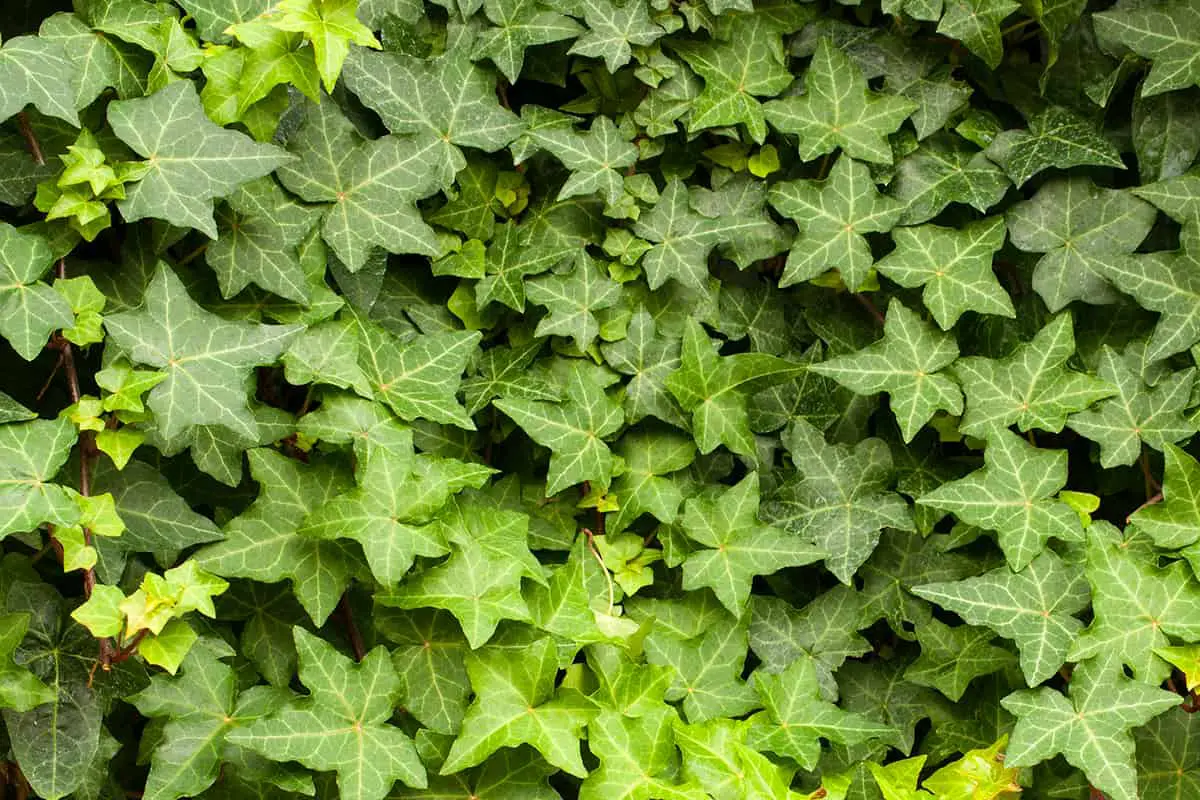
Ivy, specifically the variety known as Hedera, can transform your balcony into a lush, private space. This versatile plant thrives in containers and climbs with ease, offering dense foliage that acts as a natural screen. You’ll enjoy the added bonus of its evergreen leaves throughout the year.
To start your balcony privacy project, select a robust Hedera variety. These plants tolerate shade well, making them ideal for balconies with limited sunlight. Regular watering and feeding will keep your ivy healthy. For optimal growth, provide a structure like a trellis for it to climb.
Manage growth by pruning. This ensures your ivy remains thick and full, maximizing privacy. Be aware of common Hedera diseases like leaf spot. Healthy plants resist diseases better, so it’s essential to start with disease-free specimens.
Remember, Hedera is known to be invasive in some areas. Always check local guidelines before planting.
Jasmine
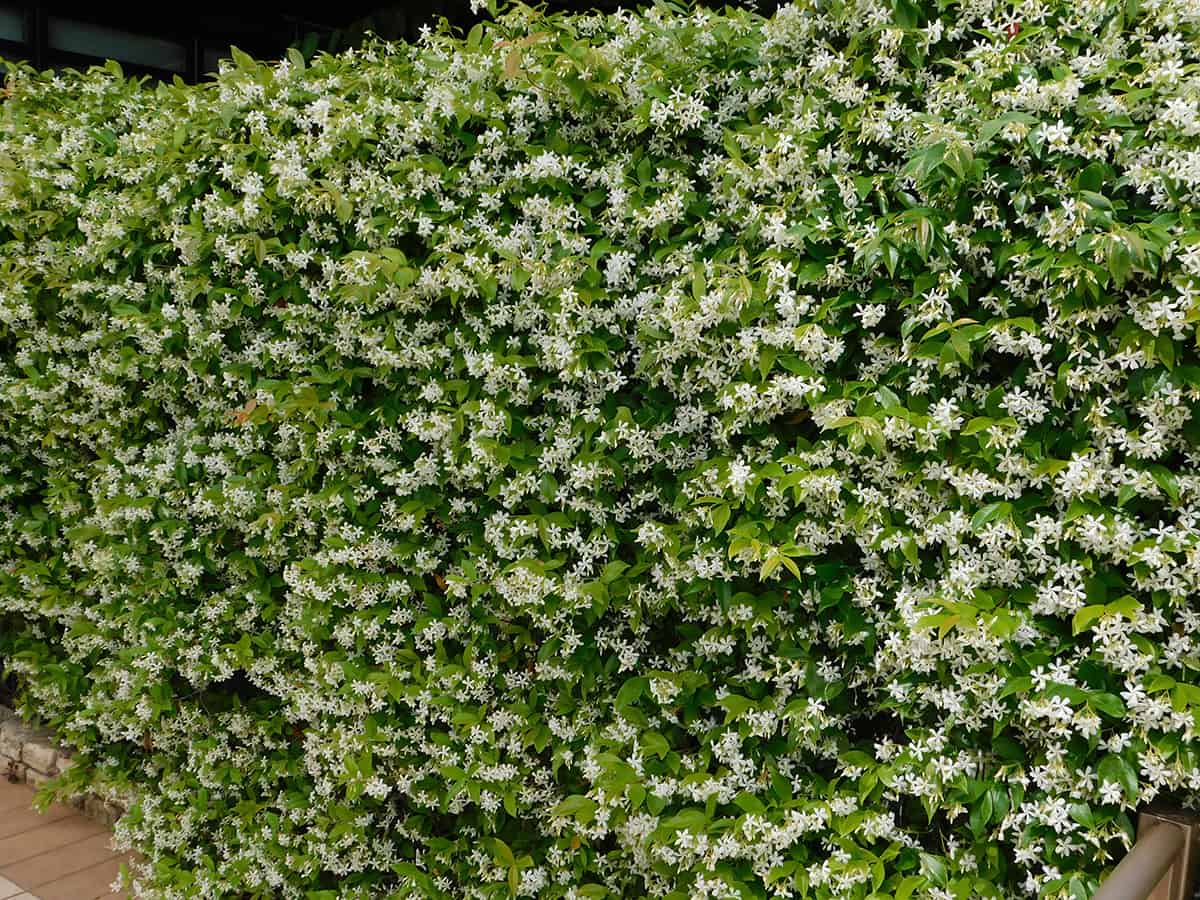
Jasmine plants will enhance your balcony’s appeal. They are known for their lush foliage and fragrant flowers. Jasminum officinale, or common jasmine, is versatile. You can grow it as a vine that reaches up to 40 feet, or train it as a lanky shrub.
Jasmine thrives in well-drained, light soil enriched with organic matter. Even average soil will do. It grows well in full sun to partial shade and is drought and pollution tolerant. Your balcony will benefit from jasmine’s resilience.
These plants are often evergreen. They provide year-round privacy and greenery. Some species, like the common white jasmine, may need support such as a trellis. This is to maintain their shape and provide optimal coverage.
For an effective privacy screen, combine different plants. This approach improves resilience against diseases and pests.
Lavender

When seeking privacy on your balcony, consider lavender. This plant not only provides seclusion but also adds color and fragrance. Ideal for container gardening, lavender thrives in well-draining soil and full sun exposure.
Your lavender should stay pruned to maintain a compact shape. To foster optimal growth, prune annually. This will keep it lush and prevent woodiness at the base.
One of the primary benefits of growing lavender is its ability to attract bees. These pollinators will enhance your balcony garden’s health and productivity. Choose from varieties like English lavender, which grows one to two feet high and thrives in your space.
Remember, watering needs are moderate for lavender. Overwatering can lead to root issues, so ensure the soil dries out between watering sessions. In winter, protect your plant from frost.
Ornamental Grasses
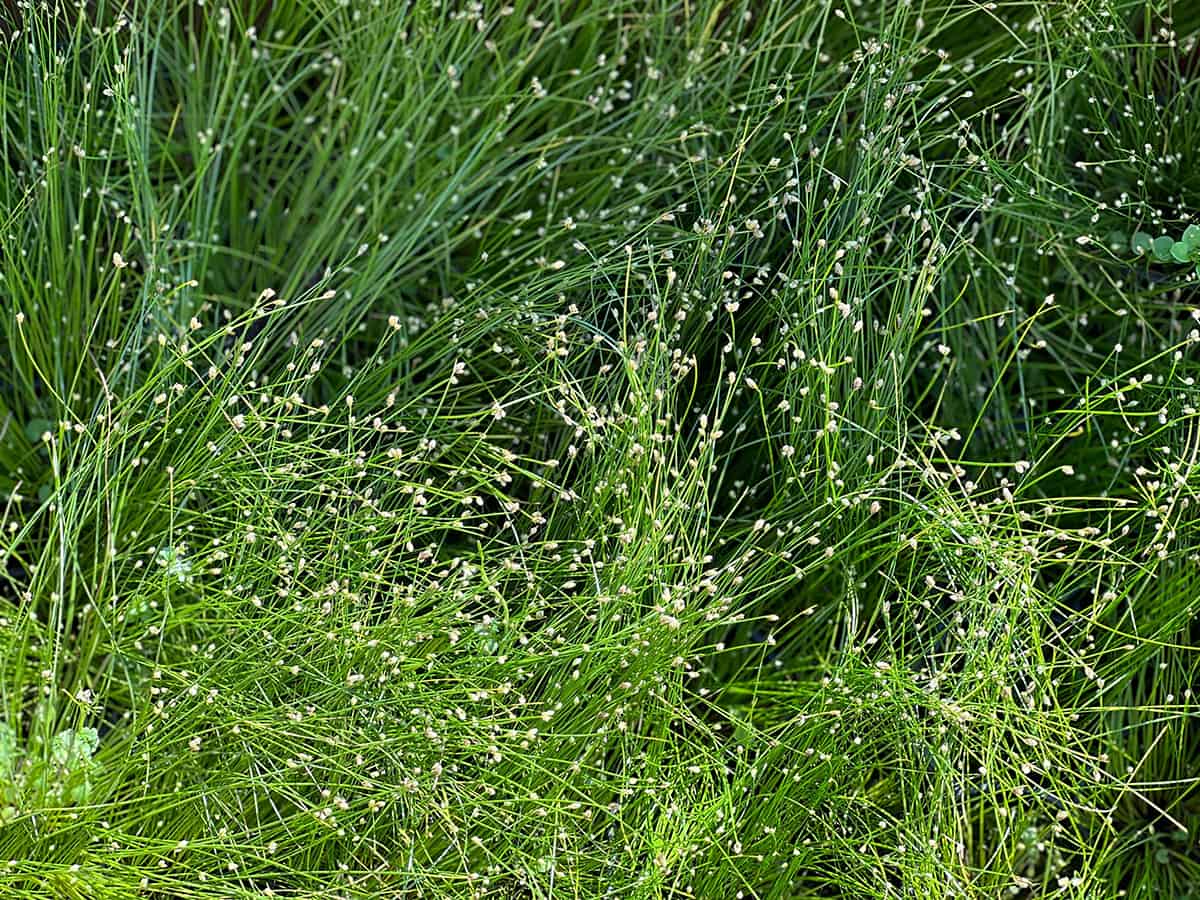
Ornamental grasses can enhance your balcony’s privacy with style. These plants offer a natural screen and require minimal care. As perennials, many ornamental grasses grow back year after year. They provide movement and texture to your outdoor space.
Choose grass-like plants that suit your balcony conditions. Sedges are suited for similar purposes as true grasses. They can thrive in various climates and soil types. This adaptability makes them perfect for balcony environments.
It’s important to consider the growth habit of ornamental grasses. Clump-forming varieties expand slowly, making them ideal for confined spaces. For nutrient needs, a balanced fertilizer applied in late spring promotes healthy growth. After establishment, these grasses often need little attention.
Incorporating ornamental grasses into your balcony garden requires smart placement. Position taller varieties at the back or sides for maximum coverage. Lower-growing grasses work well along edges. Together, they create a layered look for privacy.
Maintaining your grasses is straightforward. Cut them back in the dormant season to encourage fresh growth. This task also preserves the tidy appearance of your balcony space.
Photinia
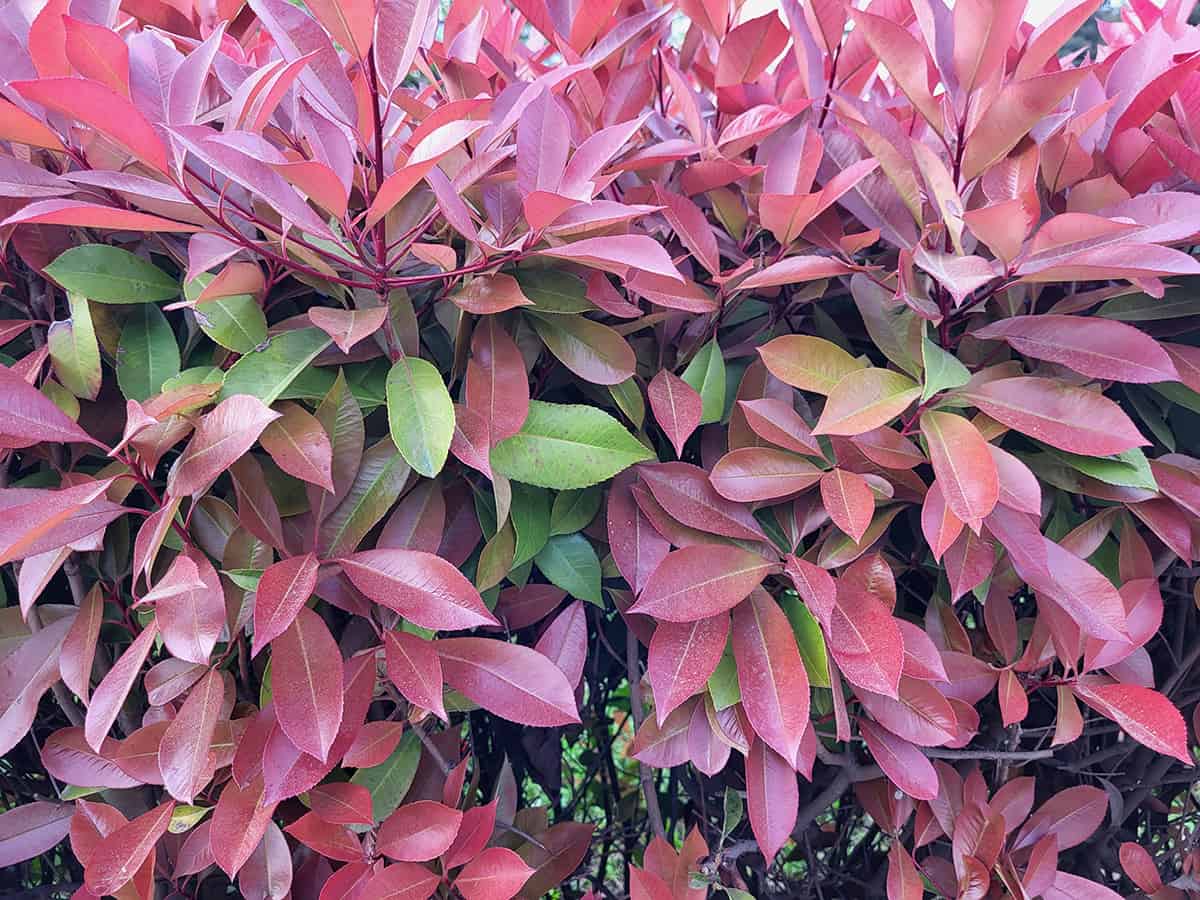
When you choose Photinia plants for your balcony, you make a smart choice. These plants are popular as privacy screens. Their quick growth and dense foliage block sight lines. Photinia is also known for vibrant new leaves that display strong red color before turning green.
Caring for these plants is straightforward. They thrive in well-drained soil and prefer sunny or partly shaded areas. To maintain their attractive appearance, prune them regularly. This encourages new growth and a fuller shape.
Photinia can reach a height of 10 to 15 feet. This makes it ideal for creating a natural wall. Despite this substantial size, you can easily manage their shape to suit your balcony space.
Be mindful of the flowers’ scent. Some find the odor of Photinia blooms unpleasant. This usually is not an issue as the flowering period is brief. After blooming, red berries appear, adding to the visual interest of the plant.
Potted Pine Trees
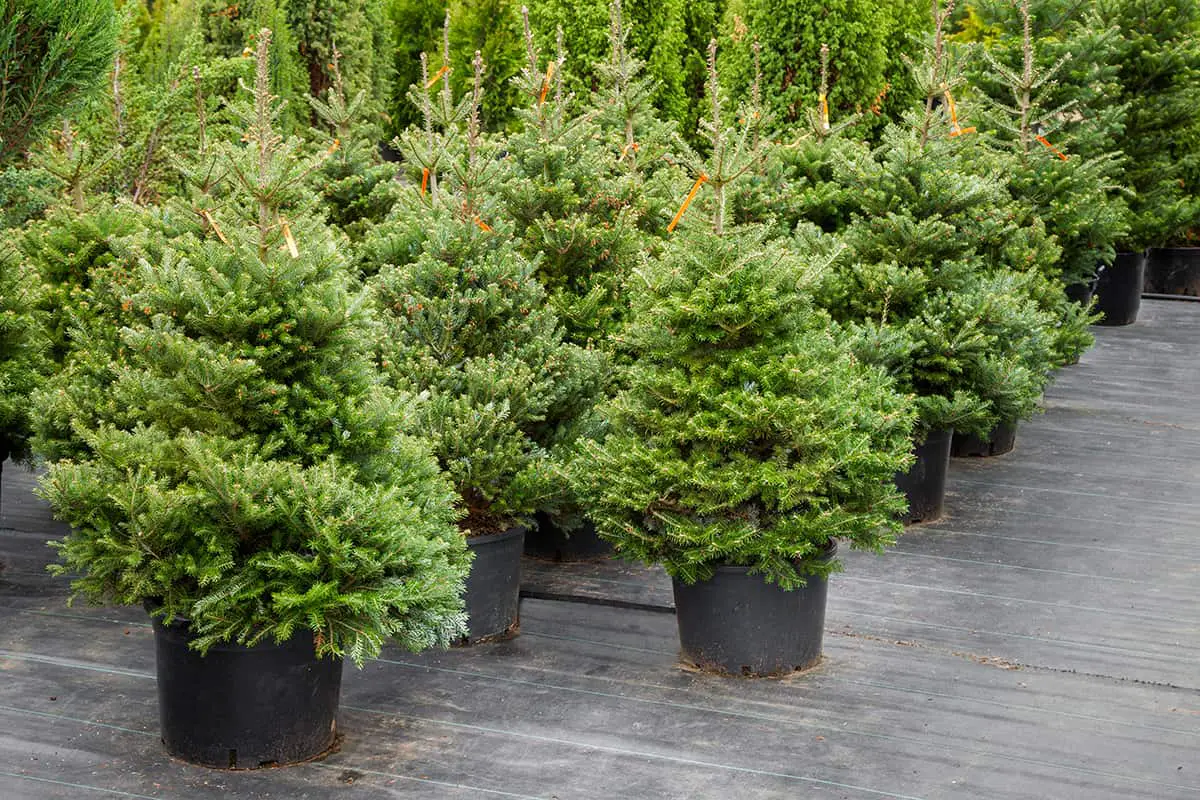
Potted pine trees offer you privacy on your balcony. They grow tall and provide a green screen from neighbors. With proper care, these plants can thrive even in confined spaces.
For balcony privacy, choose smaller pine species. Norfolk Island pines are one option. These plants don’t grow as large as other pines, fitting well in pots.
Placement is key for your potted pine trees. They need light but not direct, harsh sunlight. Find a spot on your balcony where they will receive gentle morning rays.
Remember to water and prune your pines. This keeps them healthy and looking good. Overwatering or neglect can harm your plants, so monitor the soil moisture.
Rosemary

Rosemary is an ideal plant for balcony privacy due to its robust nature. The Latin name for this aromatic herb is Salvia rosmarinus, commonly known as rosemary. It thrives in sunny conditions and well-drained soil, making it perfect for container gardening.
Expect rosemary to reach heights of 4 to 6 feet. This evergreen shrub not only adds height but also brings a pleasant scent to your space. The plant’s dense foliage creates a natural barrier.
You should water rosemary regularly, but be careful not to overwater. Pruning is not typically necessary unless you wish to shape the plant or control its size. During winter months, ensure your rosemary has ample protection from the cold.
With its small, needle-like leaves and woody stems, rosemary adds a textured green backdrop to your balcony. Its flowers can also attract beneficial pollinators. Moreover, you can use rosemary leaves to flavor your cooking.
Sky Pencil Holly
When you seek a plant for balcony privacy, consider the Sky Pencil Holly. Its narrow, upright growth habit makes it ideal for small spaces. This plant flourishes in both full sun and partial shade, adapting well to different soils. Invest in the Sky Pencil Holly to ensure a green, privacy screen around your balcony year-round.
The Sky Pencil Holly reaches heights between 6 and 8 feet, while maintaining a slender width of less than 2 feet. It requires minimal care and is known for being urban tolerant. A routine trimming will retain its sleek, columnar shape.
For optimal health, plant your Sky Pencil Holly in acidic, well-drained soil. It stands up to urban conditions, enduring shade and air pollution without faltering.
Your Sky Pencil Holly’s evergreen leaves remain glossy and vibrant throughout the year. Although its white flowers are not showy, they add a subtle charm in late spring.
Tall Ferns
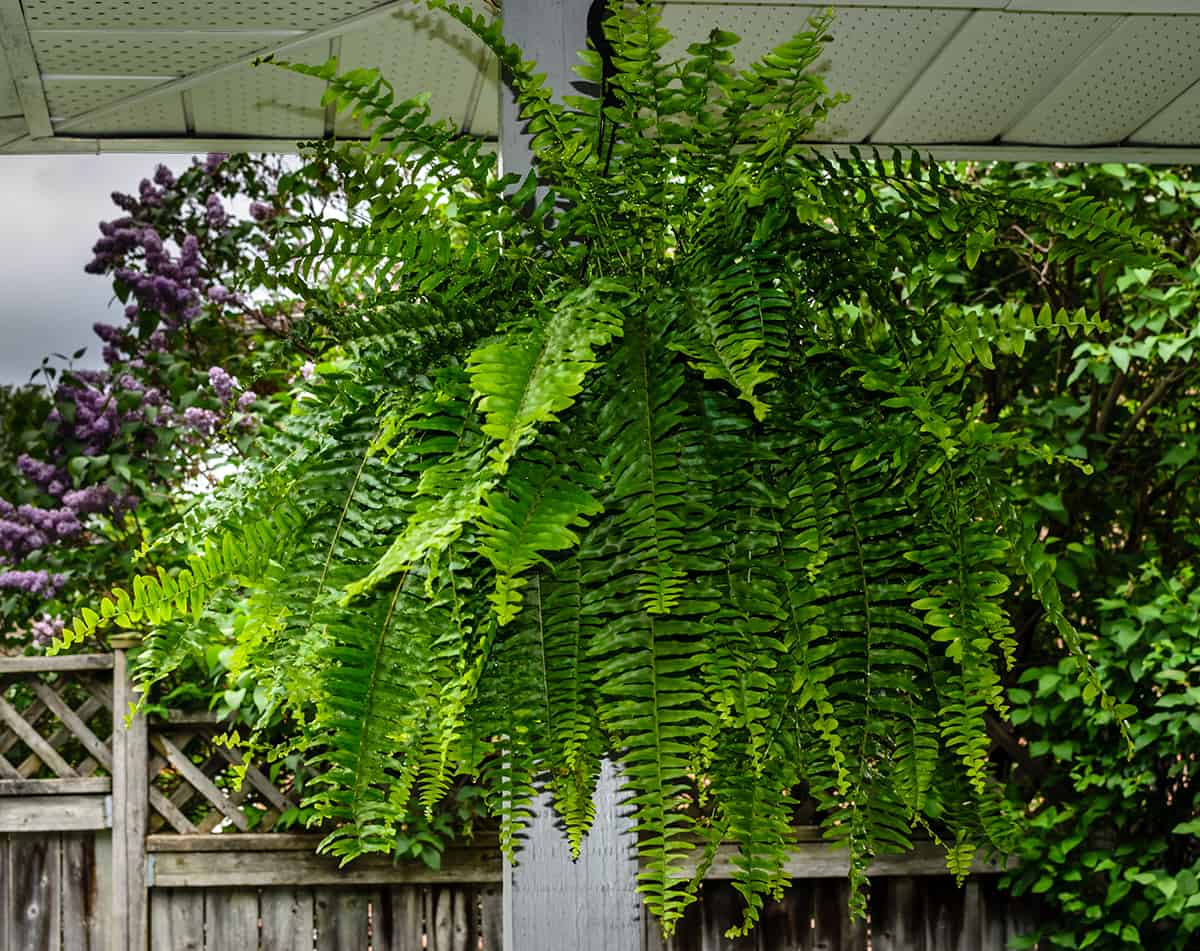
Tall ferns offer a lush, green backdrop for your balcony, creating a natural privacy screen. These plants thrive in shady spots, making them perfect for balconies with limited sunlight. Sword ferns, for example, can reach up to 5 feet and prefer cooler, moist environments. Their size and leaf density are perfect for your balcony privacy needs.
For a Florida touch, the Southern shield fern is an excellent choice. It’s robust and can grow three to four feet tall, giving you a substantial green barrier. It thrives in various conditions and keeps its foliage throughout the summer, ensuring year-round privacy.
Cultivating these ferns in your balcony space brings not only privacy but also an elegant touch of nature. Ensure you keep the soil moist and provide enough shade for optimal growth. Remember, while some ferns can adapt to the dry conditions, consistent care is crucial for maintaining their height and lush appearance.
When considering tall ferns, their longevity is a clear benefit. Many fern species live for decades, meaning that your balcony will benefit from their presence for years to come.
Thuja (Arborvitae)
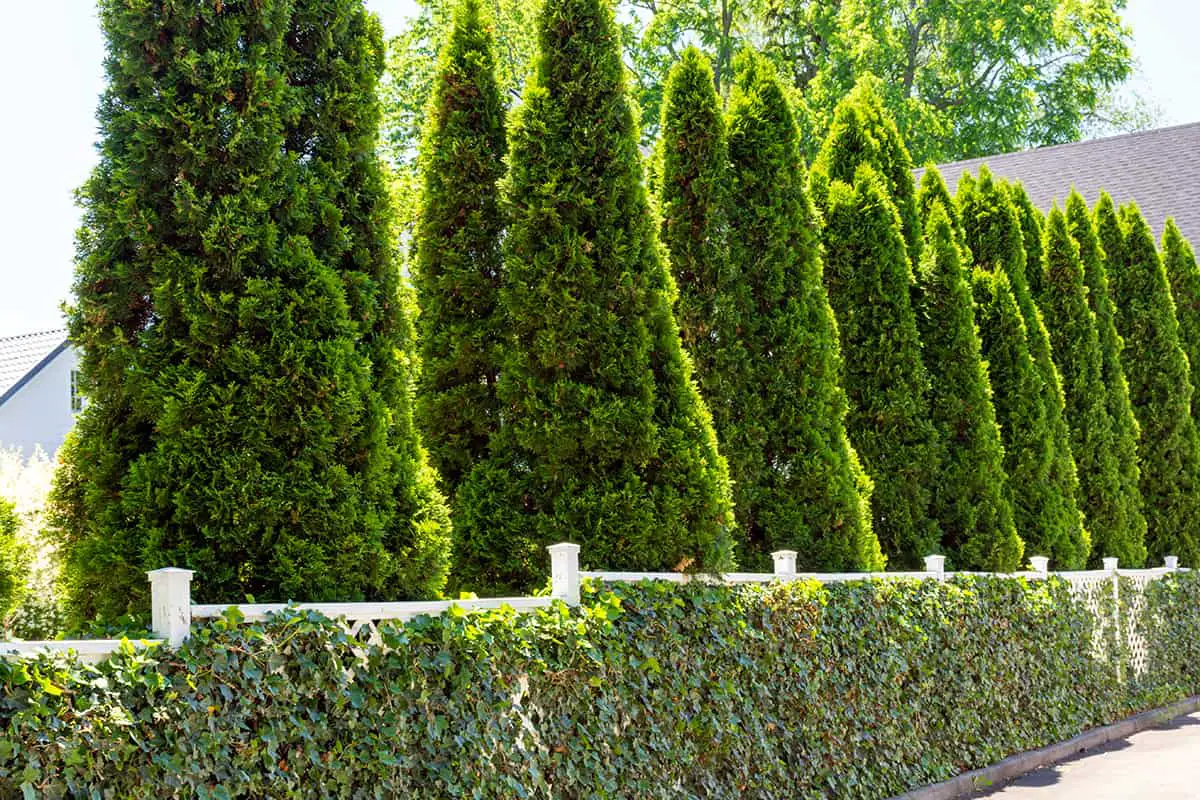
Thuja, also known as arborvitae, is an ideal choice for your balcony privacy needs. Native to North America and parts of Asia, these evergreen trees feature a pyramid shape that provides dense coverage year-round. With their green leaves, they create a natural, living screen, offering you seclusion and beauty in one.
When you select arborvitae for your balcony, consider the variety. For example, the Thuja ‘Green Giant’ is known for its rapid growth. Yet, it’s essential to know that rapid growers might suffer damage in stormy conditions. You should plant Thuja in containers that allow room for growth and ensure good drainage to prevent root rot ailments.
Another option, the American arborvitae, is low-maintenance and copes well with clay soils. Its species name, occidentalis, means it originates from the Western world. While this tree tolerates less ideal soils, be mindful to give it the space it needs on your balcony.
Care for your arborvitae involves regular watering, especially during dry spells, to keep its foliage lush. Moreover, it’s prudent to check for pests and treat any infestations promptly.
Trellised Passionflower
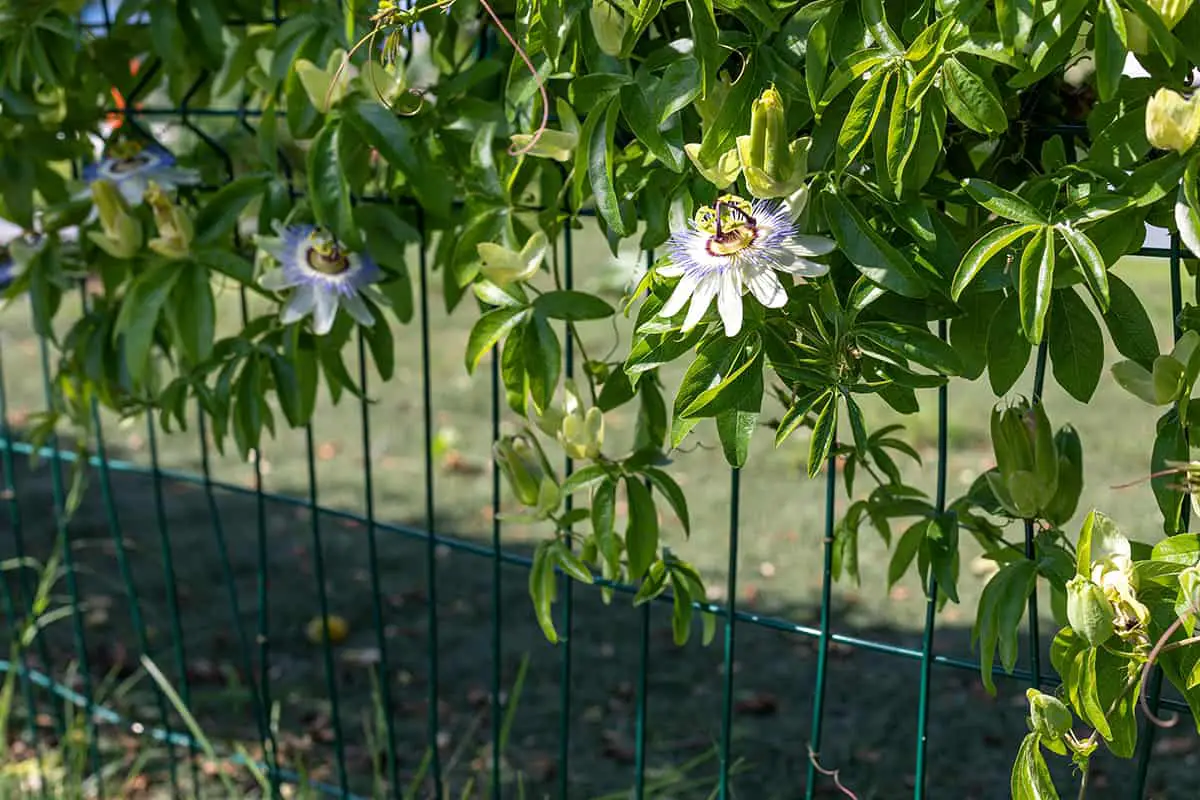
When you look for balcony privacy, trellised passionflower is a superb choice. This vine provides lush foliage. It can cover railings and create a green curtain. You will appreciate its vigorous growth and adaptability.
Passionflower vines thrive on support. A trellis allows them to climb easily. They can reach a height of up to 20 feet. To install, fix a trellis to your balcony railing. Allow your passionflower to intertwine naturally.
The blooms are not only beautiful but also fragrant. Enjoy the sight of intricate flowers from spring to fall. They attract butterflies, adding life to your space. The vines are also home to caterpillars of certain butterfly species.
A hardy yellow passionflower variety suitable for colder climates is available. It is known for maintaining its foliage in milder winters through zone 8b. For warmer areas, Passiflora incarnata may be perfect. It’s resistant to deer and has showy flowers with edible fruit.
Ensure your passionflower receives ample sunlight. Water it regularly for sustained health. Regular pruning maintains its shape and size. This practice also encourages more blooms.
Yew
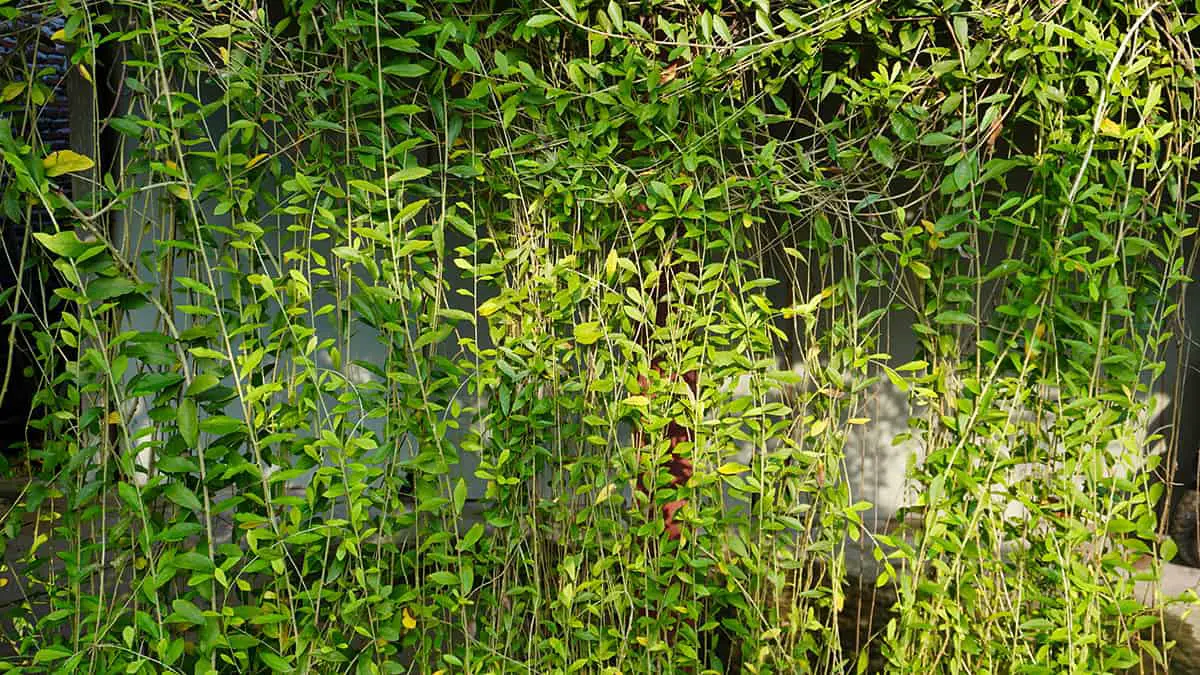
If you seek privacy on your balcony with a touch of greenery, yew plants offer a sturdy option. Yew is an evergreen with dense foliage, making it a natural privacy screen. Its ability to withstand trimming allows you to shape it according to your balcony’s size and aesthetic.
Known for their resilience, yew plants survive in a range of sunlight exposures. You can grow them in full sun or partial shade. Your yew plants will remain robust with less vigorous growth in shaded areas.
To ensure your yew’s health, be mindful of the pot size. A larger pot accommodates yew’s root growth, promoting a fuller top growth for better coverage. Regular watering and well-draining soil keep the roots healthy.
Be aware, yew is toxic if ingested. Keep this in mind if you have pets or children.
Zebra Grass
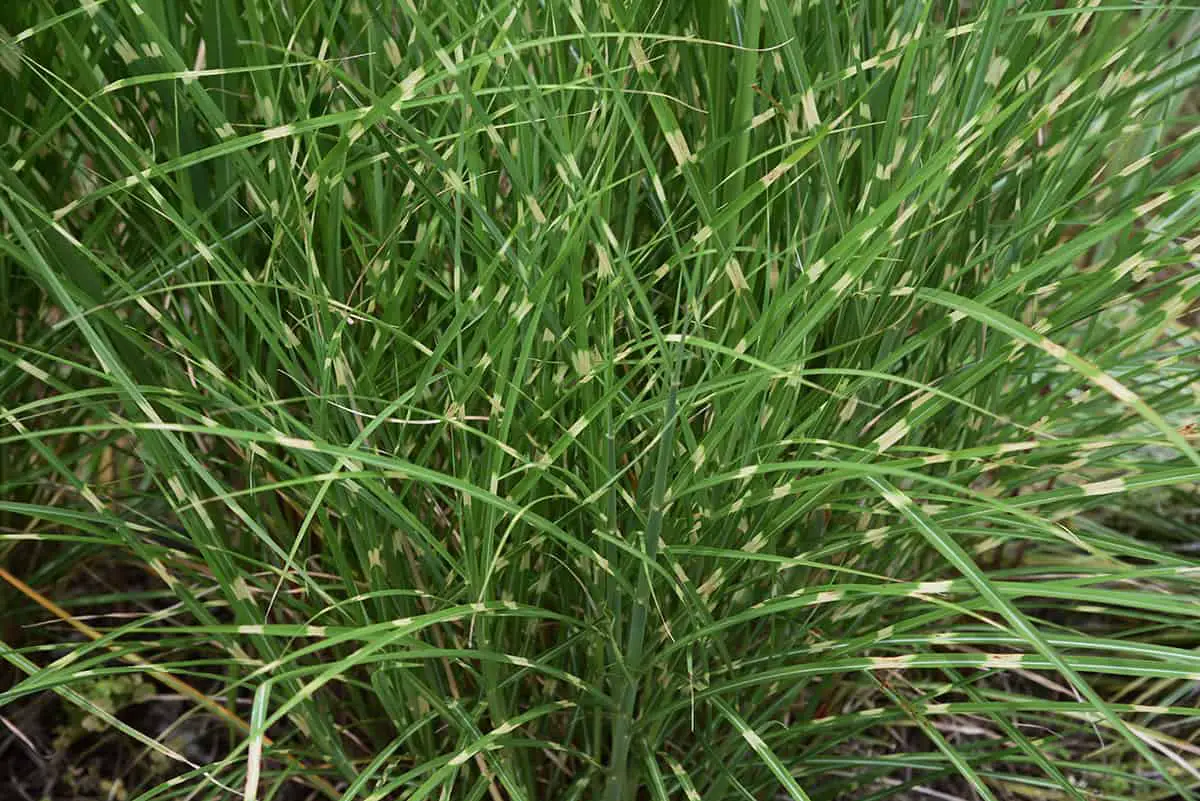
Zebra Grass is a perfect choice for your balcony privacy needs. It grows tall, offering a natural barrier that shields your space. Its distinctive leaves display horizontal yellow bands, creating a striking visual.
You can plant Zebra Grass in containers for easy management. It thrives in full sun but tolerates partial shade. Ensure you water it regularly for optimal growth.
This ornamental grass rarely needs support as it stands upright. In autumn, expect pink flowers that add a touch of color. With their long-lasting dried form, they provide interest even in winter.
Lattice with Climbing Roses
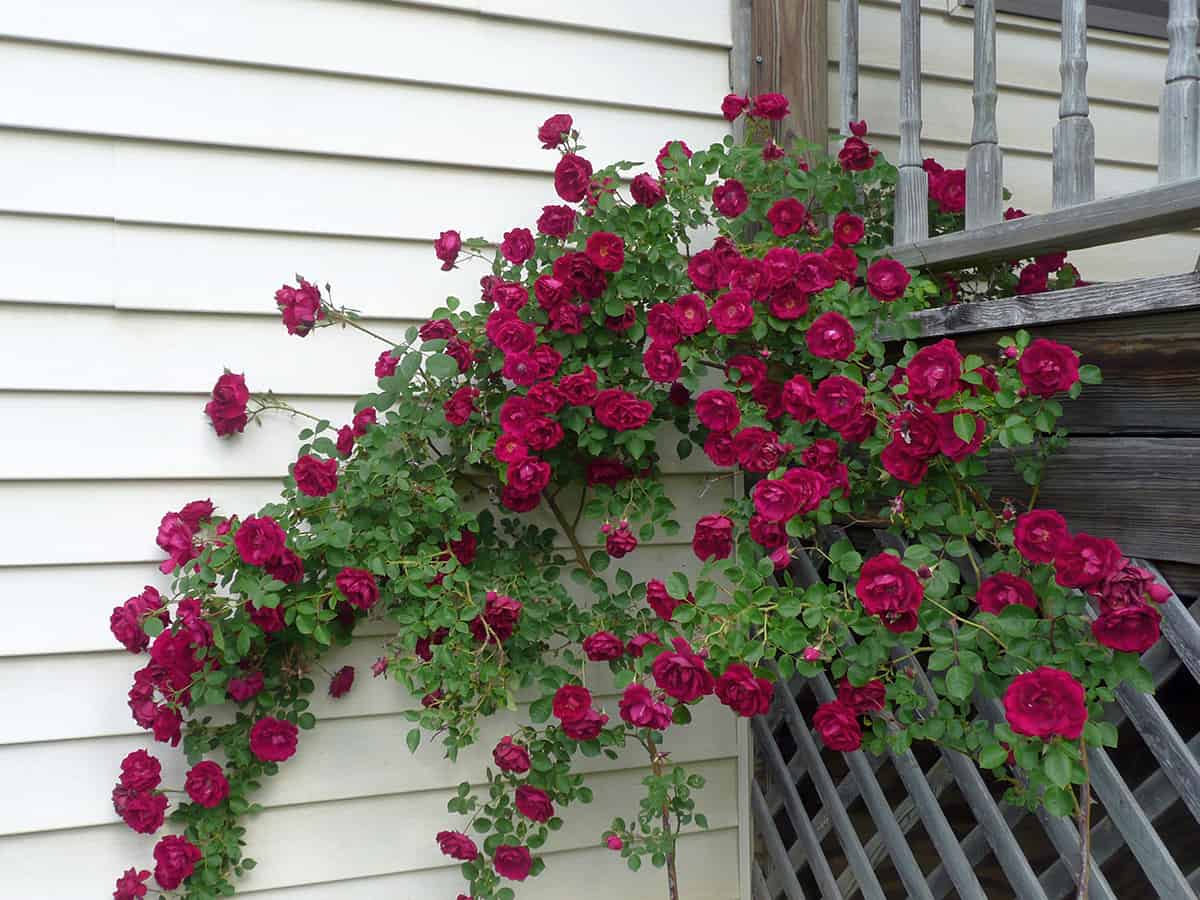
Climbing roses will enhance your balcony’s privacy with natural beauty. When you choose to grow them on a lattice, consider roses like the vibrant Rosa Altissimo. This cultivar is known for its striking red blooms. To ensure success, your roses need ample sunlight, generally five to six hours daily.
Start with a sturdy lattice affixed securely to your balcony railing or wall. This structure supports the roses as they climb and spread. The Generous Gardener rose, for instance, benefits from such support to display its fragrant, pale pink flowers.
Caring for your climbing roses includes routine pruning and tending to their soil and water needs. A pH between 6.5 and 7.0 suits them best. They also require protection from harsh winds, which is a perk of balcony placement. You’ll find that a well-placed climbing rose can be quite resilient.
Morning Glory

Morning Glories are ideal for balcony privacy. These climbing plants grow fast, providing a lush screen. They need a support structure, such as a trellis or fence. With enough light and water, Morning Glories can reach up to 15 feet. They prefer warm soil, so plant them when temperatures rise.
Your balcony orientation matters for Morning Glories. Ensure it receives ample sunlight, as they thrive in such environments. Select a variety for best growth, and avoid invasive types. Morning Glories add beauty with colorful flowers. For care, water them regularly and provide a sturdy support for climbing.
Ensure the soil is moist for Morning Glories to establish well. If you pick Morning Glories for privacy, remember, they offer seasonal coverage. They will die back in winter but return in the spring.
Sweet Peas
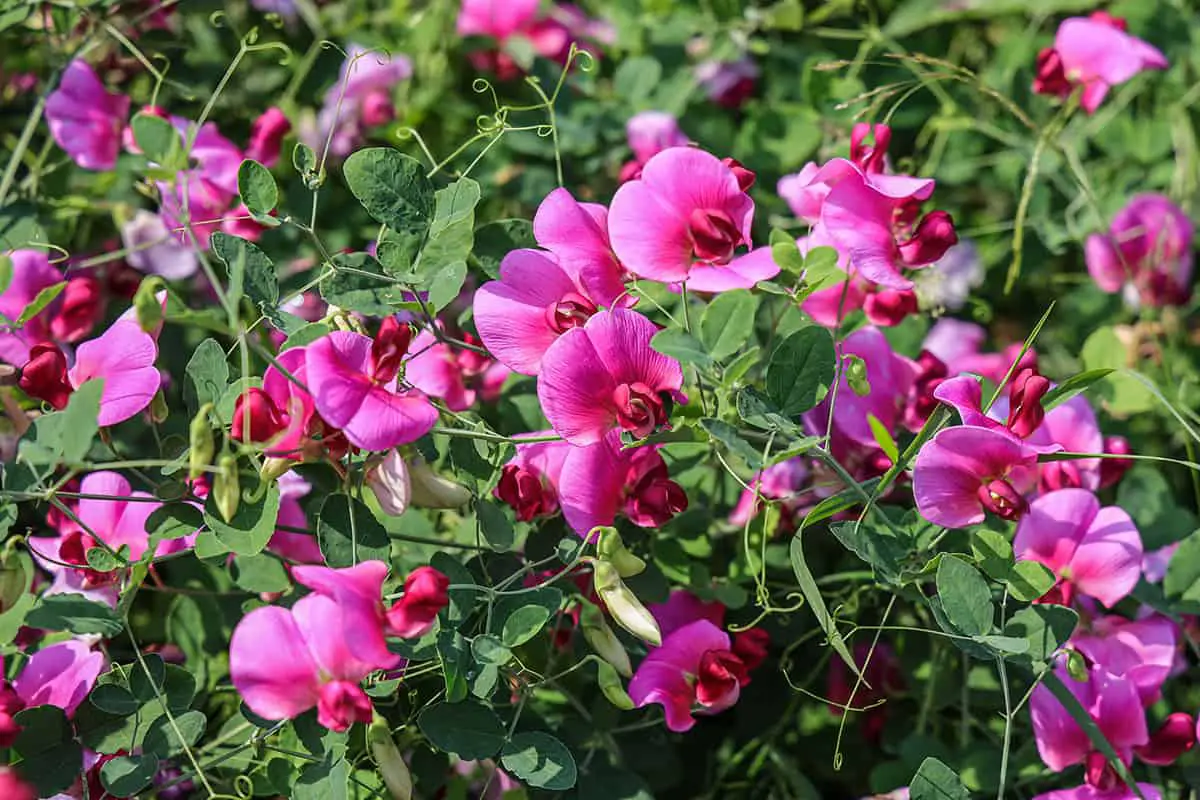
Sweet peas create a natural and beautiful privacy screen for your balcony. These fragrant climbers thrive in cooler climates. They can reach heights up to six feet, and when trained along trellises, offer substantial coverage. You can grow sweet peas in containers, using bush varieties for compact spaces.
Choose a spot on your balcony that gets partial sun. Ensure the soil is well-drained and rich in organic matter. Regular watering maintains moist soil, which sweet peas prefer. In the heat of summer, providing afternoon shade can protect them from stress.
In summer, you’ll enjoy their bright flowers. These blooms come in an array of colors, from crimson reds to soft lavenders. Remember to remove seed pods to encourage more flowers. Some sweet peas, like the Lathyrus latifolius, are perennial and can last several years.
Sweet peas have a low level of toxicity. Handle them with care, especially if you have pets. Lastly, they attract pollinators, adding life to your private balcony oasis.
